Poem for lost WW2 airmen shared with their relatives
- Published
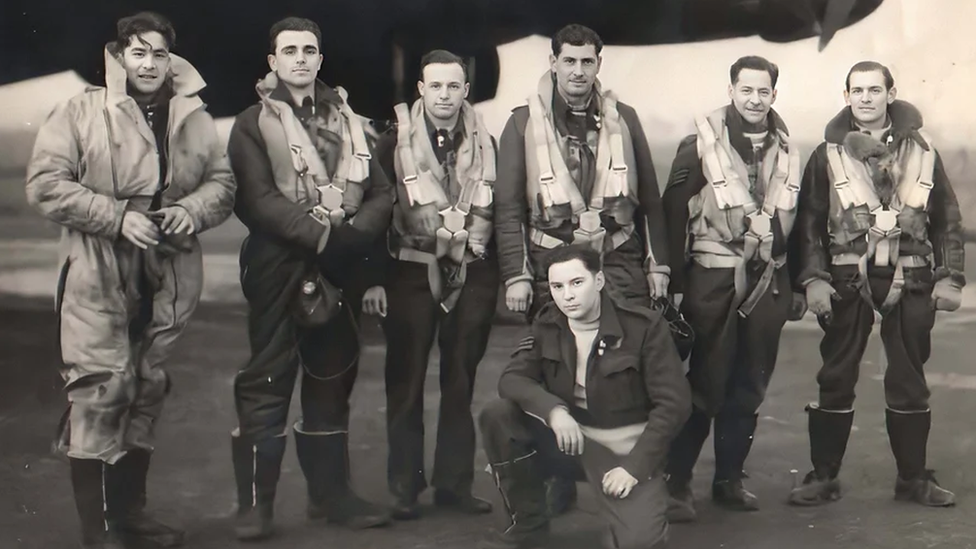
The lost crew were from Birmingham, Plymouth, Yorkshire, Essex and Lincolnshire
A poem for a Lancaster Bomber crew who never returned home has been shared with their relatives, 80 years after being written.
Jean Gibson, from Smethwick, created it in honour of the airmen ahead of a birthday party they were due to attend.
But when the crew was lost before the event took place, the words went into storage and were only recovered decades later by her son, Richard.
He was able to track down relatives of the men to share the verse with them.
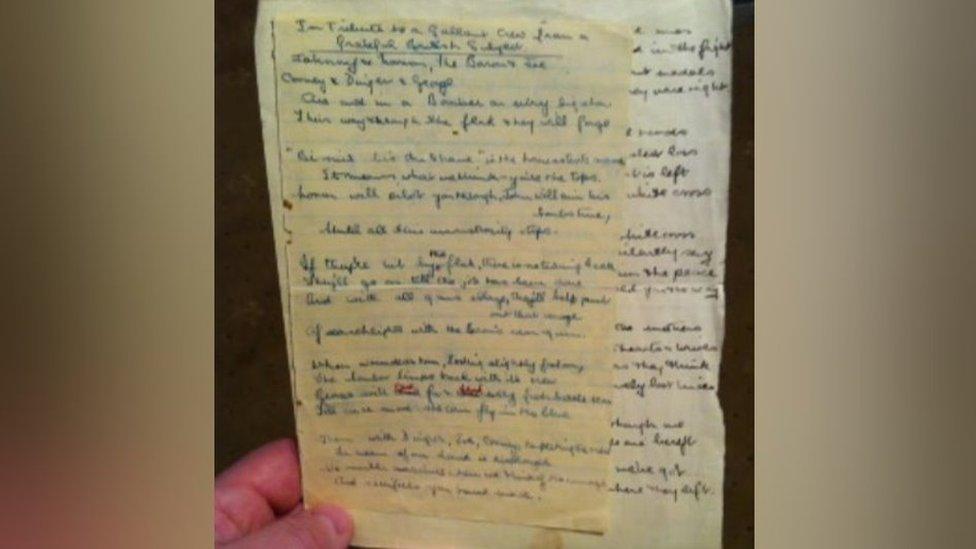
The poem was discovered inside a small exercise book
Mr Gibson, from Rotherwas in Herefordshire, said he was looking through a collection of old documents when "one poem in this small exercise book just jumped out at me".
He asked his mother to read the poem out loud and she also recounted the story behind it.
"Norm will pilot you through, John will aim his bombs true, until all this monstrosity stops," the poem reads.
"If they are hit by the flack there is no turning back, they go on until the job [has] been done."
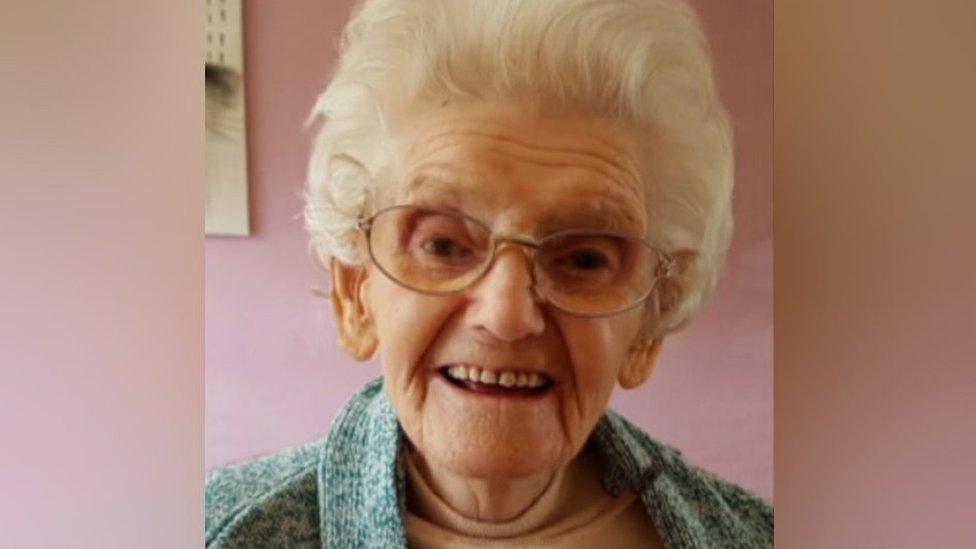
Jean Gibson wrote the poem during WW2 ahead of a birthday party
In 1943 Jean Gibson had been a teenager living in Birmingham where a work colleague invited her to an 18th birthday party.
Mr Gibson said she was excited to hear her friend's brother would be there with his Lancaster crew and was inspired to write a poem to present to them.
But by the time the party took place, the Lancaster crew had been lost and the piece was left un-read in a book of other poems.
Mr Gibson said it was only rediscovered shortly before his mother's death, a couple of years ago.
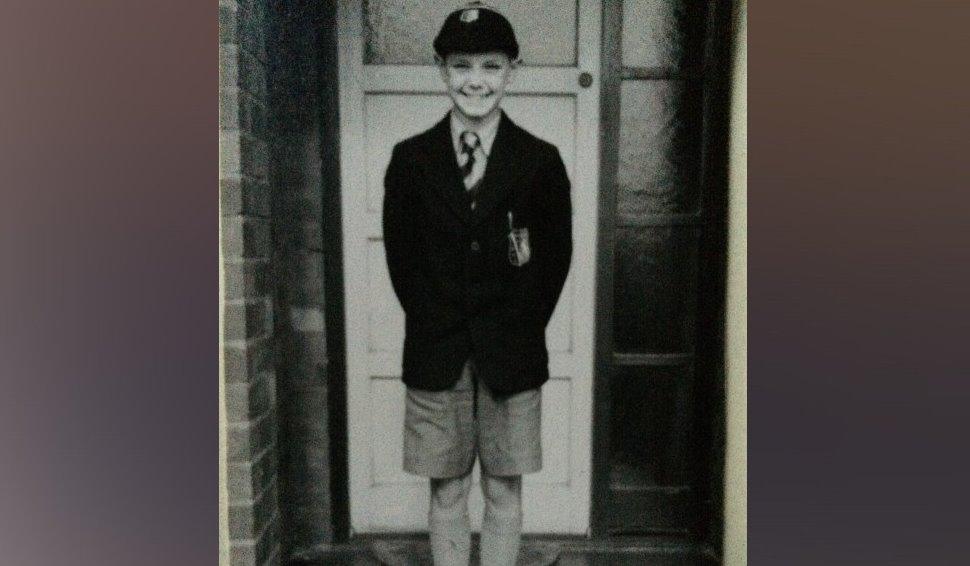
Keith Wheatstone was born three months after his father died when the bomber was lost
Mr Gibson has since managed to get in touch with relatives of the crewmen featured in the poem, including the son of wireless operator Cyril Wheatstone.
Keith Wheatstone was born three months after his father's death. He found out his dad was nick-named Corny through the poem.
"It makes him into a real person rather than someone you read about or see in a photograph," he explained.
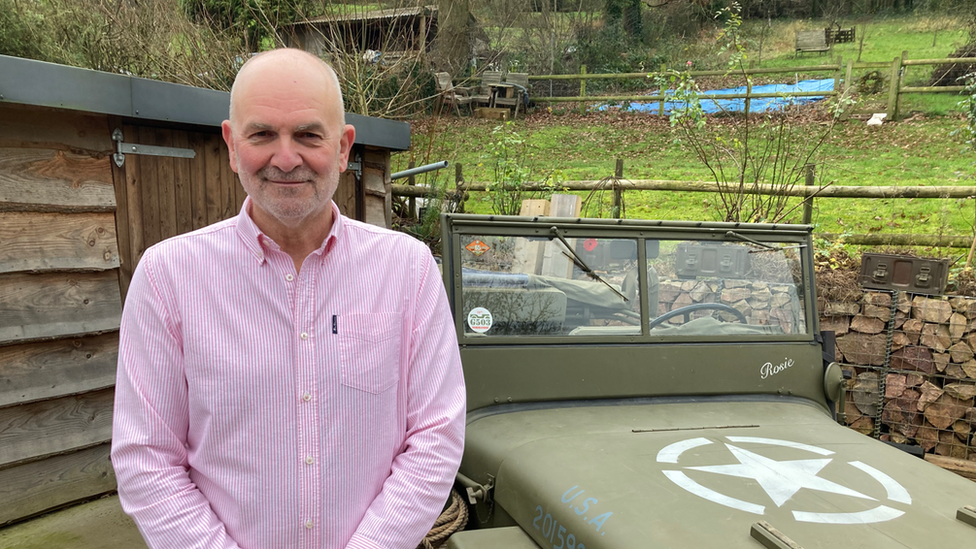
Richard Gibson said he wanted to "bring the names of these young men back from the dead"
After finding the poem, Mr Gibson said he wanted to "bring the names of these young men back from the dead, to celebrate their lives and acknowledge their sacrifice".
He said he hoped that by re-telling the story he could pay tribute to them and the "countless other lives that were lost in the armed forces or on the streets of the civilian populations of Britain and Europe in those darkest of days".
He also said that by sharing the poem, he could help keep alive the memory of his mother, whom he said "we miss dearly".

Follow BBC West Midlands on Facebook, external, X, external and Instagram, external. Send your story ideas to: newsonline.westmidlands@bbc.co.uk, external